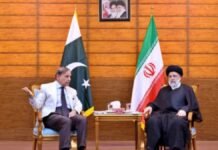
Key Points
- Incident: Abdul Rehman, a relative of Lashkar-e-Taiba (LeT) founder Hafiz Saeed, was shot dead in Karachi.
- Role: Rehman was a key fundraiser for LeT, managing funds collected by operatives in Karachi.
- Pattern of Killings: The attack is part of a series of targeted killings of individuals linked to terror outfits in Pakistan.
- Speculations: The killings have raised questions about vigilante groups, rival factions, or covert state operations.
Karachi: Abdul Rehman, a close relative of Hafiz Saeed and a significant fundraiser for the terror group Lashkar-e-Taiba (LeT), was gunned down by an unidentified assailant in Karachi’s Khairabad area. The attack occurred while Rehman was reportedly on his way to oversee fundraising activities for the organization.
Rehman played a pivotal role in coordinating funds collected by LeT operatives in Karachi, which were then funneled to support the group’s militant activities. His assassination has sent shockwaves through Pakistan’s terror networks and raised concerns about the safety of key operatives within these organizations.
A Pattern of Targeted Killings
Rehman’s death is not an isolated incident. Over recent months, Karachi has witnessed a spate of targeted assassinations involving individuals linked to terror outfits like LeT. Notably:
- Adnan Ahmed, another LeT operative, was killed under similar circumstances earlier this year.
- At least five leaders of Jamiat Ulema-e-Islam (JUI-F), an allied political group, have also been assassinated recently.
These killings have sparked speculation about the emergence of vigilante groups or rival factions targeting militants. Some reports suggest that the attacks could be part of covert operations by the Pakistan Army or intelligence agencies to eliminate figures critical of their administration or involved in internal power struggles.
Speculations and Reactions
The motives behind these killings remain unclear, as no group has claimed responsibility so far. However, theories abound:
- Rival Factions: Infighting among militant groups like LeT could be driving these assassinations as they vie for control over resources and influence.
- Vigilante Action: A possible vigilante group may be systematically targeting individuals associated with terrorism to curb their activities.
- State Involvement: Some experts believe the Pakistan Army or intelligence agencies could be orchestrating these killings as part of a broader strategy to clean up militant networks under international pressure.
The Pakistani government has faced mounting criticism for its inability to prevent such incidents, with opposition leaders questioning its commitment to maintaining law and order amid rising violence.
Larger Implications
The assassination of Abdul Rehman highlights the growing instability within Pakistan’s terror ecosystem. With increasing international scrutiny and economic challenges, Pakistan finds itself in a precarious position balancing internal security concerns with external pressures to dismantle terror networks operating within its borders.
This killing also underscores the fragile state of militant organizations like Lashkar-e-Taiba, which have long relied on figures like Rehman for operational and financial support. As targeted killings continue to rise, the future of these groups remains uncertain amid growing chaos and internal strife.



















































